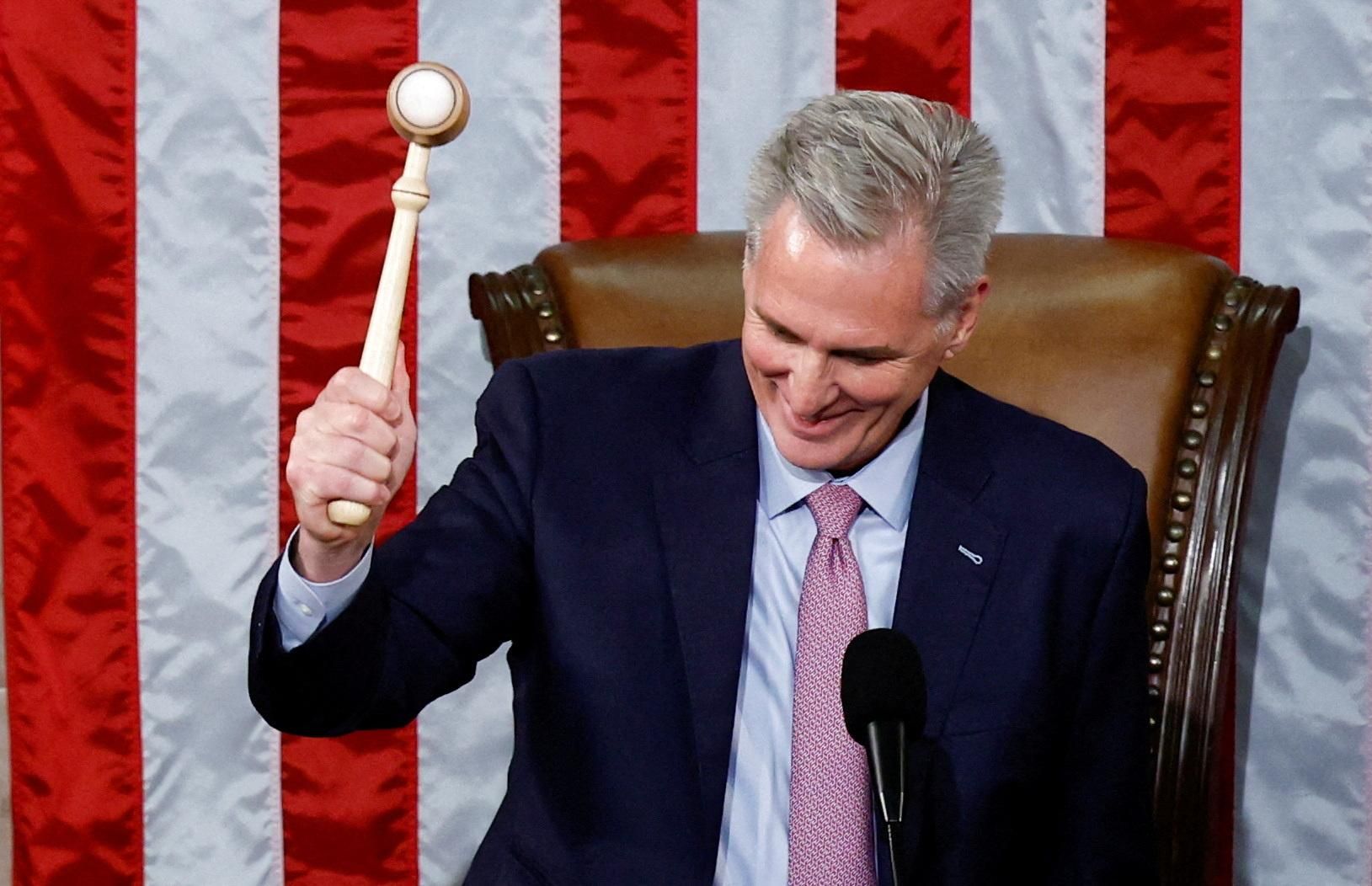After four days and 15 rounds of voting, Republican leader Kevin McCarthy has finally been elected and sworn in as speaker of the House of Representatives, one of the most influential posts in the US government. Heading into Friday evening’s first vote, there were still six holdout Republicans: Andy Biggs (R-Ariz.), Lauren Boebert (R-Colo.), Eli Crane (R-Ariz.), Matt Gaetz (R-Fla.), Bob Good (R-Va.), and Matthew M. Rosendale (R-Mont.). After a series of desperate backdoor negotiations, the 14th round saw Boebert and Gaetz vote as “present,” leaving McCarthy one vote shy of the gavel. Frustrations visibly boiled over in the chamber, and lawmakers finally elected McCarthy in the 15th round, with six voting as “present.” The humiliating last few days have demonstrated McCarthy’s limited sway over an unruly Republican caucus, and he was forced to make significant concessions, including agreeing to a provision that would allow a single lawmaker to bring to the floor a vote of no confidence against him at any time. The GOP stalwart had long resisted giving the ragtag of anti-establishment holdouts this sort of power but was forced to acquiesce.
